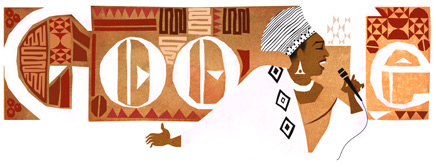In Anthills of the Savannah, Chinua Achebe's fifth major novel, one of the characters, an old man, explains the power and purpose of stories:
To some of us the Owner of the World has apportioned the gift to tell their fellows that the time to get up has finally come. To others He gives the eagerness to rise when they hear the call; to rise with racing blood and put on their garbs of war and go to the boundary of their town to engage the invading enemy boldly in battle. And then there are those others whose part is to wait and when the struggle is ended, to take over and recount its story.
The sounding of the battle-drum is important; the fierce waging of the war itself is important; and the telling of the story afterwards--each is important in its own way. I tell you there is not one of them we could do without. But if you ask me which of them takes the eagle-feather I will say boldly: the story. Do you hear me? Now, when I was younger, if you had asked me the same question I would have replied without a pause: the battle. But age gives to a man some things with the right hand even as it takes away others with the left. The torrent of an old man’s water may no longer smash into the bole of the roadside tree a full stride away as it once did but fall around his feet like a woman’s; but in return the eye of his mind is given wing to fly away beyond the familiar sights of the homestead…
So why do I say that the story is chief among his fellows? The same reason I think that our people sometimes will give the name Nkolika to their daughters--Recalling-Is-Greatest. Why? Because it is only the story that can continue beyond the war and the warrior. Because it is only the story that outlives the sound of war-drums and the exploits of brave fighters. It is the story, not the others, that saves our progeny from blundering like blind beggars into the spikes of the cactus fence. The story is our escort; without it, we are blind. Does the blind man own his escort? No, neither do we the story; rather it is the story that owns us and directs us. It is the thing that makes us different from cattle; it is the mark on the face that sets one people apart from their neighbours. […]
So the arrogant fool who sits astride the story as though it were a bowl of foo-foo set before him by his wife understands little about the world. The story will roll him into a ball, dip him in the soup and swallow him first. I tell you he is like the puppy who swings himself around and farts into a blazing fire with the aim to put it out. Can he? No, the story is everlasting…Like fire, when it is not blazing it is smouldering under its own ashes or sleeping and resting inside its flint-house.



